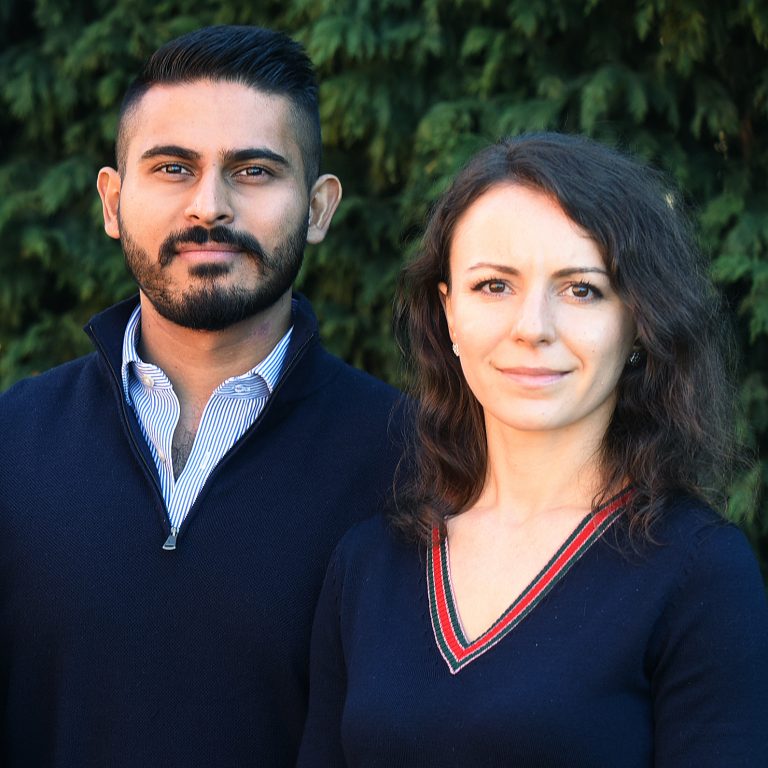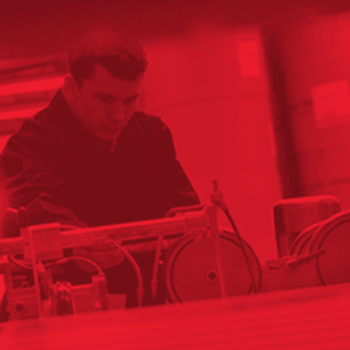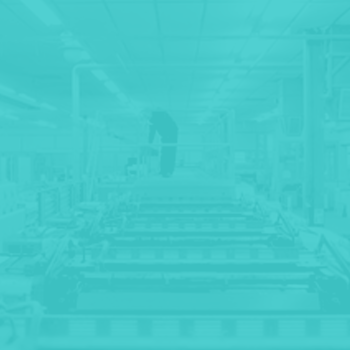AHP’s new owner reveals his steady and stable approach for long-term growth and expansion.
In May 2021, Sameer Rizvi, the 29-year-old CEO of investment conglomerate RDCP Group, took over the Ipswich-based Ancient House Printing Group, which had previously remained in the same family for over 50 years. We quiz Sameer on why he favours old economy sectors, on what drew him to AHP and on why he really doesn’t want to go to the Moon.
What initially attracted you to acquiring AHP?
The commercial printing sector, especially during Covid, went through a lot of turmoil, but AHP really stood out. Their management team of Mike Underdown and Allison Berry made a lot of great decisions early on – and this effectively, resulted in them still making healthy profits despite a temporarily reduced turnover and order book. This was not the case for a lot of their competitors, who have been kept artificially alive thanks to the numerous government support schemes. But, as most of these schemes are coming to an end, we’re going to see more and more insolvencies and administrations. While everyone else is firefighting, AHP will continue to focus on growth. This might also present opportunities for us to explore strategic bolt-on acquisitions.
AHP is fundamentally a traditional, analogue business. What’s in it for an ambitious young investment firm?
If you look at most of our businesses, we’re attracted to stable, profitable companies that have a long history and generate good cashflow. That typically rules out anything that’s new and exciting. If you invest in a company that’s trying to get to the Moon, there are countless things that need to go right before it starts to make money – and where there’s uncontrolled variables, there’s a far less likelihood of actually making any money.
Our model, which is based on buying profitable businesses and then using the surplus profits to buy more companies, only works with stable and comfortable businesses. This model wouldn’t work if we were acquiring 2% of a growing tech business.
What exactly does RDCP do and how big is the company?
I’d describe RDCP as an investment conglomerate, predominately for the fact that we have interests in multiple industries. By the end of 2021, which is our sixth year as a business, we’ll have completed 18 acquisitions that have been consolidated into seven companies.
To give you some idea of size, when our three live transactions close over the next couple of months, our balance sheet size will have risen to around $400m (£300m). The group’s annual run turnover will be over $225m (£160m) and we’ll be employing nearly 2,300 people.
Your approach to running your companies appears to be quite hands-off, why?
The reason our model works is we give a lot of autonomy to each CEO, and this means that we do not get involved in operations, but we are always there when they need strategic support. For example, AHP is a standalone business, and it hasn’t required any support from RDCP, but if and when it does, there’s a balance sheet here and access to wider resources. We always support the businesses we own because we are here for the long-term.
Give us a potted history of your background and your career to date?
I’m from India originally. My parents used to move around, so we grew up in various countries in the Middle East. We also spent three years in Malaysia. My dad worked in insurance and whenever he got a better job offer, he would move the entire family. I went to McGill University in Canada, where I studied economics and finance. After university I moved to London, initially for a short stint at Commerzbank. I then joined Royal Bank of Scotland as an investment banker. When I joined RBS, I met Iryna Dubylovska [the co-founder of RDCP and Sameer’s now wife].
You didn’t stay in investment banking for long, why?
Iryna and I had a very short stint in banking. We’d look at the senior people who would be 20 years, 30 years down the line and none of them inspired us, including the CEO of the bank. I just thought, I don’t want this guy’s job if that’s where this career path ends up. Both of us realised that what we really wanted to do was build our own investment firm. When you come to that realisation, it’s very hard to work for anyone else.
…and you deliberately avoided the well-trodden route of investment banking into private equity, why?
Once we started to dig deep into what our investment business was going to be, we realised we didn’t want to become a private equity fund manager. We compete with private equity on most of our acquisitions. They’re very good at structuring and deal-making, but they make money through fees and not through doing wonderful things with the businesses they buy.
So, when we go to people like Mike and Allison at AHP and say we want to buy their company, we’re not acting as a middle-man representing a third party, it’s our own capital. We are investing our balance sheet. If something goes right, we’re personally very happy. If something goes wrong, we’re invested to turn it around.
RDCP Group is making a name for itself in the UK mid-market investment space at a time when there is pressure on private equity firms to reduce their unjustified fees and improve their mediocre returns. Many entrepreneurs and sellers are choosing to partner with RDCP as a trusted investor, one that provides a safe home for their businesses and their staff.
AHP is a family run business as is RDCP. Did this have any bearing on your decision to buy the company?
We regularly come across pure family businesses where they would not want to sell to a couple of city slickers who represent some kind of private equity firm. They think, ‘I’ve built this business over 30 years, my employees are like my family, and these guys are going to flip us in three to five years because that’s their business model.
In those situations, Iryna and I make it clear we’re also a family business. We want our son and all future children to join RDCP Group in the future. That’s what our business is.
Read our interview with AHP co-managing directors, Mike Underdown and Allison Berry
Sameer was talking to Andy Stone of Adventures in Content





